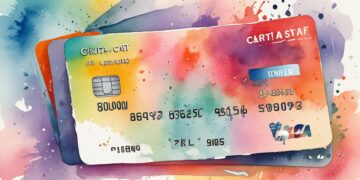
How to Analyze Your Personal Finances Like a Business
This piece explores how to apply business principles to personal finance, emphasizing cash flow management, budgeting, and goal setting. By analyzing your finances like a business, you enhance financial literacy, identify improvement areas, and develop strategies for growth, ultimately paving the way for long-term financial success.

How to understand your credit card statement in detail
Understanding your credit card statement is essential for effective financial management. By breaking down key components like transaction details, payment due dates, and fees, you can track spending habits, avoid unnecessary charges, and make informed decisions that enhance your financial health. Empower yourself for a more secure financial future.

How to Use Finance Apps to Improve Your Daily Life
Finance apps are essential tools for managing personal finances effectively. They simplify budgeting, track expenses, offer insights, and help set savings goals. By engaging with these apps, users can build better financial habits, stay organized, and confidently work towards their financial aspirations while enjoying community support.

How to Identify and Eliminate Impulsive Spending
Impulsive spending can hinder financial goals, driven by emotional triggers, social influences, and convenience. To combat this, establish budgets, create shopping lists, and practice a waiting period before purchases. Enhancing financial awareness and accountability through apps and support groups can foster a mindful relationship with money, paving the way for financial stability.

Financial Planning for Singles Living Alone
This guide emphasizes the importance of financial planning for singles living alone. It covers essential strategies such as budgeting, creating an emergency fund, managing debt, and setting clear financial goals. By prioritizing savings and investment, individuals can achieve greater financial independence and security for their future.

How to Use Spreadsheets to Track Your Financial Goals
This article highlights how to effectively use spreadsheets to manage finances. It discusses customizing templates, incorporating visual tools, and tracking progress toward financial goals. By regularly updating and analyzing spending patterns, readers can gain clarity and control, ultimately fostering financial discipline and achieving their aspirations.

How to teach financial education to children at home
Teaching children financial literacy at home is crucial for their development and future success. Engaging them through everyday experiences, savings challenges, and practical activities fosters responsible money management. These hands-on lessons empower children to make informed financial decisions, cultivating a mindset that values saving, wise spending, and future planning.

How to Control Leisure Spending Without Stopping Enjoying Life
Controlling leisure spending is essential for financial health while enjoying life. By setting a budget, prioritizing meaningful experiences, utilizing discounts, and exploring free activities, you can indulge without financial strain. Creative strategies like experience swapping and establishing a fun fund further enhance enjoyment, ensuring memorable moments within your means.

How to eliminate debt without compromising your standard of living
This article explores effective strategies for managing debt while maintaining a comfortable lifestyle in New Zealand. It emphasizes budgeting, prioritizing high-interest payments, increasing income, and seeking professional advice. By making informed financial choices, individuals can eliminate debt without sacrificing enjoyment or quality of life.

How to Use Performance Evaluations to Boost Your Career
Performance evaluations, often seen as stressful, can be transformative when approached positively. By leveraging feedback, setting clear goals, and showcasing achievements, individuals can enhance their skills and build valuable networks. Engaging proactively in these evaluations paves the way for career growth and new opportunities.